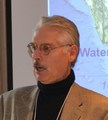BRITISH COLUMBIA’S 2023 ELECTED OFFICIALS SEMINAR SERIES: “Asset management focused on sustainable service delivery is fundamental to helping local government and First Nation communities achieve their primary purposes,” wrote David Allen, Executive Director (Winter 2023 issue of Asset Management BC Newsletter)

“BC’s Local Government Leadership Academy was one of the first local government organizations to recognize the importance of leadership in “stewardship” and the important role of asset management as the path to sustainable service delivery. Held every four years, following the BC local government elections, the Elected Officials Seminar series organized by the Academy includes stops in each of UBCM’s five Area Associations, providing a 3-day orientation and networking program on roles and responsibilities, stewardship, and good governance,” stated David Allen.
ASSET MANAGEMENT FOR SUSTAINABLE SERVICE DELIVERY: “Why do we need elected officials? This is an important question and often poorly understood. Council is not elected to be helpful to staff or to tell them how to deliver services,” wrote Christina Benty, former Mayor of Golden, BC (Winter 2023 issue of Asset Management BC Newsletter)

“Local government was created to provide a broad range of localized services and functions on behalf of the Provincial Government that have a direct impact on the health, safety, and quality of life for the residents of the community. Local government exists as a service provider. These services are collectively agreed upon and paid for. Local government has been granted the tools to collect revenue to pay for those services in the form of local property taxes and user fees,” stated Christina Benty.
ASSET MANAGEMENT FOR SUSTAINABLE SERVICE DELIVERY: “Often, we pay most attention to the upfront costs and forget that those costs are only a fraction of the money that needs to be spent on an asset over its lifetime,” wrote Kristy Bobbie, Asset Manager with the City of Prince George (Winter 2023 issue of Asset Management BC Newsletter)

“One of the key responsibilities of a Council is to provide for stewardship of the public asset of its community. Asking staff to provide you with a full life cycle cost analysis is the key to ensuring decisions about new assets are made with all the facts in mind. Existing and future generation taxpayers are depending on you, as today’s Council, to make the right decisions for the community and to spend our limited financial resources wisely. This includes knowing what existing assets need to be replaced and when or when not to move forward on a big shiny project,” stated Kristy Bobbi.
LOCAL GOVERNMENT POLICY IMPACTS RIPPLE THROUGH TIME: “Read, ponder, and absorb. After that, learn some more. It is a process. You will then be primed to make informed policy choices that achieve the goal of Sustainable Service Delivery in your community,” stated Kim Stephens, Partnership for Water Sustainability in BC, in an essay written for new politicians

“My over-arching message to those elected in October 2022 is succinct: Get the water part right in a changing climate, and you will be amazed how other parts of the community resiliency puzzle then fall into place. A supporting message is this: Our land ethic has consequences for water. This means elected representatives need to understand why development practices disconnect the water balance pathways that power stream-ecology. They also need to understand why a water-first approach to green infrastructure can reconnect the two,” stated Kim Stephens.
FLASHBACK TO 2011: “The link between asset management and the protection of a community’s natural resources is emerging as an important piece in Sustainable Service Delivery,” foreshadowed Glen Brown, Chair of Asset Management BC, in a co-authored article that is one of the first articles to introduce Sustainable Service Delivery as an objective

Glen Brown is the visionary and thought leader who coined the term “sustainable service delivery”. This way of viewing the local government sphere of responsibility changes everything about how local governments do business in an era of rapid change. “Level-of-Service is the integrator for everything that local governments do. What level of service does a community wish to provide, and what level can it afford? Everyone will have to make level-of-service choices. Establish the level-of-service that is sustainable to protect watershed health,” stated Glen Brown.
AFFORDABLE AND SUSTAINABLE RE-INVESTMENT IN MUNICIPAL INFRASTRUCTURE IS ESSENTIAL: “The risk and consequences of not taking action for infrastructure renewal are substantially higher and more consequential than for Master Plans which are ‘futures’ documents,” stated Wally Wells of Asset Management BC

As an advocate for Asset Management for Sustainable Service Delivery, Wally Wells has done a public service by drawing attention to the urgent need to engage and inform elected representatives so that they truly understand “risks and consequences” associated with their core responsibility, infrastructure. “An Asset Management Plan is about what is necessary to continue providing EXISTING services at existing levels, Thus, a decision not to invest in infrastructure renewal would risk reducing or compromising EXISTING levels of service,” stated Wally Wells.
AFFORDABLE AND SUSTAINABLE RE-INVESTMENT IN MUNICIPAL INFRASTRUCTURE IS ESSENTIAL: “Too often, thinking stops after the capital investment is made. Yet everyone needs to be thinking in terms of life-cycle costs,” stated Glen Brown, Chair of Asset Management BC

“The core document for asset management for BC local governments is Asset Management for Sustainable Service Delivery: A BC Framework. The title is deliberate and important because the ‘function’ and responsibility of Municipal Councils and Regional Boards is Sustainable Service Delivery. The process to support decision making is Asset Management. The Framework provides the basis for the entire asset management process for our local governments to follow. Funding agencies, as part of funding applications, request communities to identify where they are within the asset management process using the framework,” stated Glen Brown.
ASSET MANAGEMENT FOR SUSTAINABLE SERVICE DELIVERY IN BRITISH COLUMBIA: “Ask a citizen in a public place if they expect their local government to fully maintain its assets to the end of their useful life and then replace them. They will look at you, like duh, of course! The public expects this level of service. Our professions should require it,” wrote Kim Fowler (Fall 2022 issue of Asset Management BC Newsletter)

“Local governments manage 60% of the physical assets in Canada on 8 cents of the tax dollar. These assets comprise the economic backbone of our communities – they are essential – and so should their management. While all local governments do asset management and financial planning, the integration needs to enable discussions with our community about level of service, required maintenance and the cost of replacement. As professionals, we owe our communities those discussions. The resilience of our communities increasingly relies on the integration and the discussions will break the poor practices through awareness,” stated Kim Fowler.
STORY BEHIND THE STORY OF EAP, THE ECOLOGICAL ACCOUNTING PROCESS: “We validated the usefulness of EAP through application of a consistent set of research questions and objectives to seven subsequent case studies,” stated Tim Pringle, EAP Chair

“Master drainage planning, integrated stormwater planning, and other processes at best pay lip-service to the role of the streamside protection zone within a stream system context, the condition of native vegetation and woodlands cover, and the need for restoration. Now, the Ecological Accounting Process (EAP) provides the reason to ask the question, why aren’t these factors considered and given equal weight to engineering considerations? With EAP as a foundation piece, local governments have a rationale and a metric to do business differently via multiple planning pathways,” stated Tim Pringle.
ECOLOGICAL ACCOUNTING PROCESS: “Living Water Smart in British Columbia: What’s in a Number?” – ‘story behind the story’ of the methodology and metrics (released by the Partnership for Water Sustainability in October 2022)

“Three decades ago, the philosophy that ‘use and conservation of land are equal values’ launched Tim Pringle on a career trajectory that has culminated with his breakthrough accomplishment in leading the EAP initiative. EAP opens ups multiple pathways for local governments to achieve the goal of ‘natural asset management’. Now, with EAP as a foundation piece, maintenance and management (M&M) of stream systems can be integrated into a Local Government Finance Strategy to tackle the Riparian Deficit,” stated Kim Stephens.

